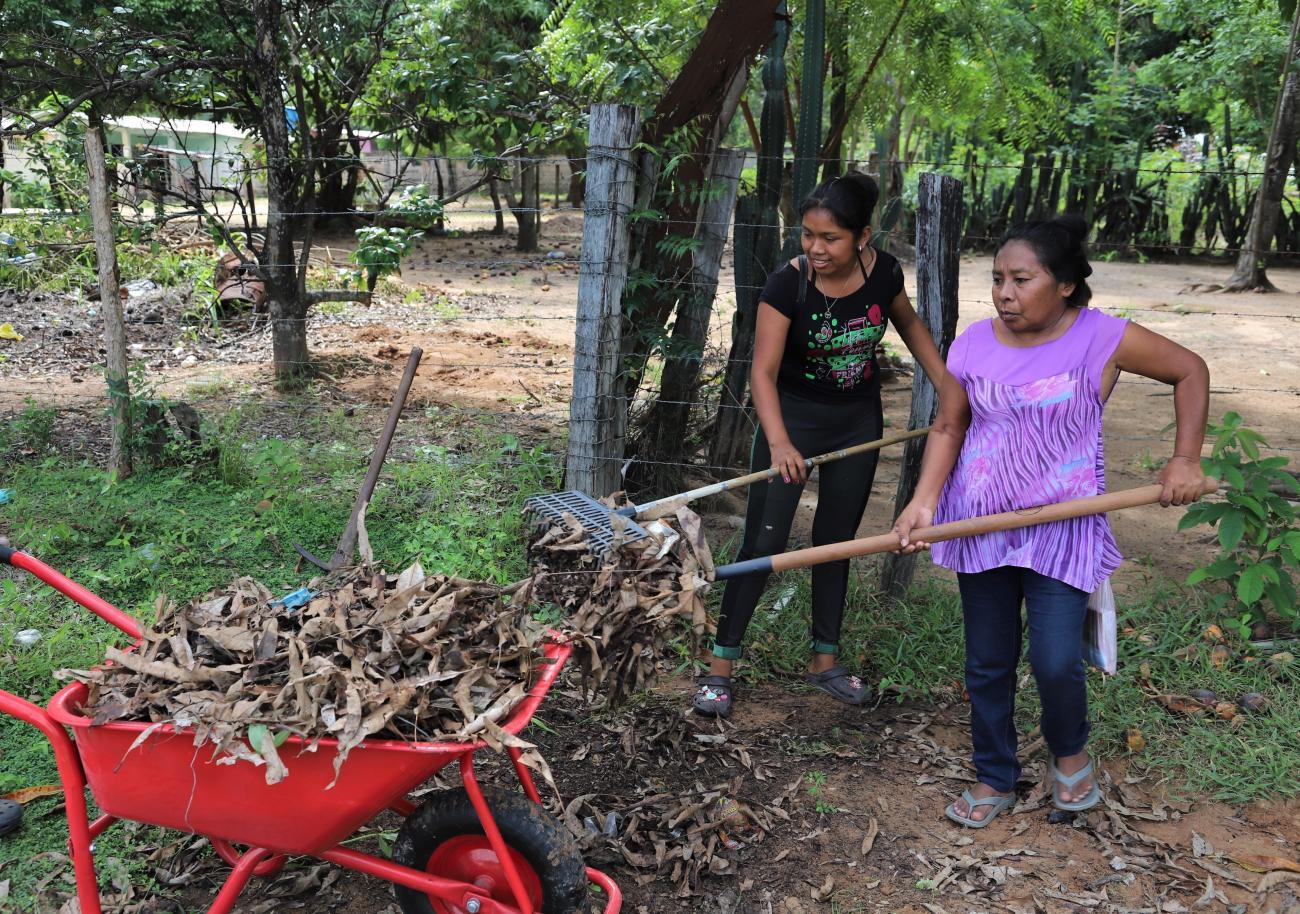How sustainable agriculture reinforces protection of indigenous women in Venezuela

Due to their remote location, Venezuela's rural indigenous communities have been particularly affected by the impact of the COVID-19 pandemic and the country's socio-economic situation.
A widespread decline in public services, such as electricity, domestic gas supplies, and public transportation has driven some members of the indigenous communities on Venezuela's western border with Colombia, including Río Negro, to cross the border frequently to purchase basic goods, including food items.
As these challenges persist, community gardens have started to play a key role in enhancing food security and are becoming a critical source of subsistence for the Wayúu indigenous community of Río Negro in Zulia, Venezuela.
The local women's network Jieyúú Kojutsuu ("Women of Value") first established their community garden to support local women and their families and help meet their subsistence needs.
There are currently twenty-six members of the community working together to grow corn, tomatoes, bell peppers, celery, black beans, cantaloupe, and other vegetables and fruits in Río Negro.
"Can you imagine? There are more women than men working in the garden! We are going to harvest our own food without having to depend on our husbands' income. And the young people who used to hang around in the streets have also joined this project," explains Guillermina Torres, one of the women working in the community garden in Río Negro.
The garden has brought together many of the Wayúu indigenous community's most vulnerable groups, including young people at risk of being recruited by armed groups, unemployed women at risk of gender-based violence, and elderly people who had resorted to begging and heavy work to survive.
"Traditionally, agriculture was one of the main livelihoods in the region. In this intergenerational space, elderly people have been able to integrate themselves and share ancestral knowledge with younger members of the community. Women who were most at risk of gender-based violence while their relatives or partners undertook back-and-forth trips to Colombia now have a safe space where they gather every day to grow food that will later benefit their families. We mitigate protection risks by promoting environmentally friendly and sustainable initiatives," states Diego Moreno, UNHCR's Protection Assistant in Maracaibo, who has been monitoring this initiative.
Organic fertilizers and all-natural insect repellents
With limited financial resources, the Wayúu indigenous community had to think of new innovative and sustainable ways to grow their crops.
"We don't have to go spend money in shops buying chemicals that can also affect our crops and the environment. Instead, we learned to make our own 100% natural fertilizers and repellents with ingredients we can find right here in our community", adds Guillermina.
"The replacement of chemical fertilizers with organic fertilizers and of agro toxins with natural insecticides made of neem leaves, tobacco leaves, and vegetable ash, as well as the creation of seed banks, guarantees a sustainable and eco-efficient way of life, as well as a healthier diet for the families and the community as a whole," explains Wolfgan Rangel, IOM's Productive Projects Monitoring Officer in Maracaibo.
To support these efforts, UNHCR has donated agricultural tools, seeds, water tanks, and solar streetlights, helping to ensure that the community has a clean and sustainable source of energy and water irrigation.
IOM has trained local families on how to make organic fertilizers and natural insect repellents, using ingredients—including animal waste—that are easily found in the community.
In total, more than 660 community garden projects have been supported in the states of Zulia, Táchira, and Barinas. Both UNHCR and IOM have donated the necessary tools and resources to support communities through the development of sustainable small farming initiatives. In some of these communities, local markets have also been created to sell vegetables, helping generate alternative sources of income.
Given the remote location of the communities and the lack of public transportation, it is vital that the community garden projects continue to be scaled up. This way, more indigenous families will be able to take part in these subsistence farming initiatives and stop relying on trips to neighbouring countries to buy food.
Did you know that in 2021, the SDGs with the highest financial execution by the UN in Venezuela were "Zero Hunger" (SDG2) and "Health and Well-being" (SDG3)? Learn more in UN Venezuela's Annual Results Report 2021.
This piece was adapted and translated into English by the UN Development Coordination Office (DCO) from a story originally written by John Jeffcoat Mészáros, Communications & Public Information Associate, UNHCR.
For more information on the UN's work in Venezuela, please visit: Venezuela.UN.org. To learn more about the results of our work in this area and beyond, read the SDGs section of the 2022 UNSDG Chair Report on DCO.













